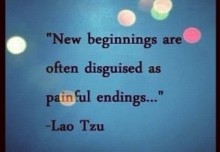How to be an Ally to our Love Partner by Cyntha Gonzalez
When we share life with another, we are bound at some point or another to clash and disagree on major life decisions. It actually is phenomenal to share our lives with another being – this person who once was a total stranger. Together, we make co-decisions about how money will be spent, if we will support financially the other or be supported or co-share expenses, if we will have children and how we would raise them. We share our naked, vulnerable bodies with this other, bringing to the bed and our partner’s arms a life history of body image, joys, hopes, abuse, betrayals and what we love sexually and what we don’t. We decide together where we spend our holidays or in what positions we have sex – or don’t, amongst the multitude of decisions we make with this one person. Even not making a decision, is deciding to avoid the issue or let the other decide. It’s wonderful when we are on the same wavelength and everything simply flows. But inevitably, there will be times when sparks fly and we are in staunch disagreement on how to handle a particular joint decision.
We have a choice in how we approach these stickier moments. We may feel confined and resentful and see this other as our enemy, or ask, how could I be an ally to my partner instead? Resolving the situation peacefully calls for empathy, where we put our relationship before our wounded ego.
As children, we were so dependent and vulnerable. We had basic needs and very often, they were not met by either society or by our family. When not, we take those needs and the resulting pain with us, tightly wrapped, and as soon as we meet a true love we either hastily (the fuser version), or hesitantly (the isolater version), unwrap them, deposit them and expect the other to fulfill and heal them once and for all!
They may or may not. Darlene may meet Karl’s need out of the codependent version: “Okay, we’ll go to your mother’s for New Year’s Eve because she is a widow, even though I’d love to dance the new year in with my best friends. If I don’t, I fear you will sulk for days on end!” Darlene may even complain to her friends out of frustration. The healthier version would be to say, “Karl, I know you feel guilty as the only child and do not want to leave your widowed mother alone on New Year’s. Probably deep down, you really don’t want to go either. Even more so, you may feel bad asking me to come along and sacrifice a fun evening out with my friends. Can we talk about it? I want to support you. It’s also important for me to have fun with my friends, particularly given I hold a stressful job and rarely go out. But I want to be with you and I want to respect your mother, too. Is there a way where we can have a win-win?” Validation and Empathy go a long way.
The same goes with sexuality. Vinnie has discovered that for his partner, Camilla, oral sex is off limits. Perhaps he once enjoyed it with a former partner and longs to share this intimacy with Camilla. He may even seek it elsewhere. To be Camilla’s ally, would be to address this in a safe setting, to ask her to reflect if there is any reason why she is so strongly against it. Vinnie: “For me it is about sharing love in an intimate way with you that is also pleasurable. If you feel that it’s bad, exploitive or anything else, I want to know. I also want to be sensitive to you, please help guide me”.
The interesting thing about working this way is that there is monumental learning for both partners. A new attitude is incorporated in becoming an agent for one’s partner’s healing and growth. Deep down, we don’t want to be stodgy, stubborn or aggressive people. We feel whole and liberated when we go beyond our fears and resistances.
Sometimes this involves coming out of your comfort zone and daring to breach an imposing no-go zone. For Darlene and Vinnie, they are asked to learn to jump the fence and be an ally, rather than an opponent. Sometimes, the person is not ready to be an ally. There can be old resentments that come from the couple or one’s past long before this partner, that cloud the situation.
The challenge is to know when it’s best to compromise and back off or when it’s time to invite radical growth and say, “Honey, enough. The fear saboteur is wrecking havoc in you and in our relationship. I love you and let’s do it a different way”.
The key to becoming an ally to our partner, is about being more self-aware and compassionate and willing to let down our guard and trust. If I were to look at you with compassion as to why you are resisting in the ways that you are, what would I see? Who would I see? Forgiveness follows, resentments become neutralized and we light the flames of intimacy even stronger.
It’s our choice – we can either go down a path which involves a continual power struggle (it’s my way or the high way!) or we can spark growth through committed understanding and valiant respect.
Cyntha Gonzalez is a Transpersonal Human Relations Coach and Tantra Workshop Facilitator. For more information go to www.cynthagonzalez.com





